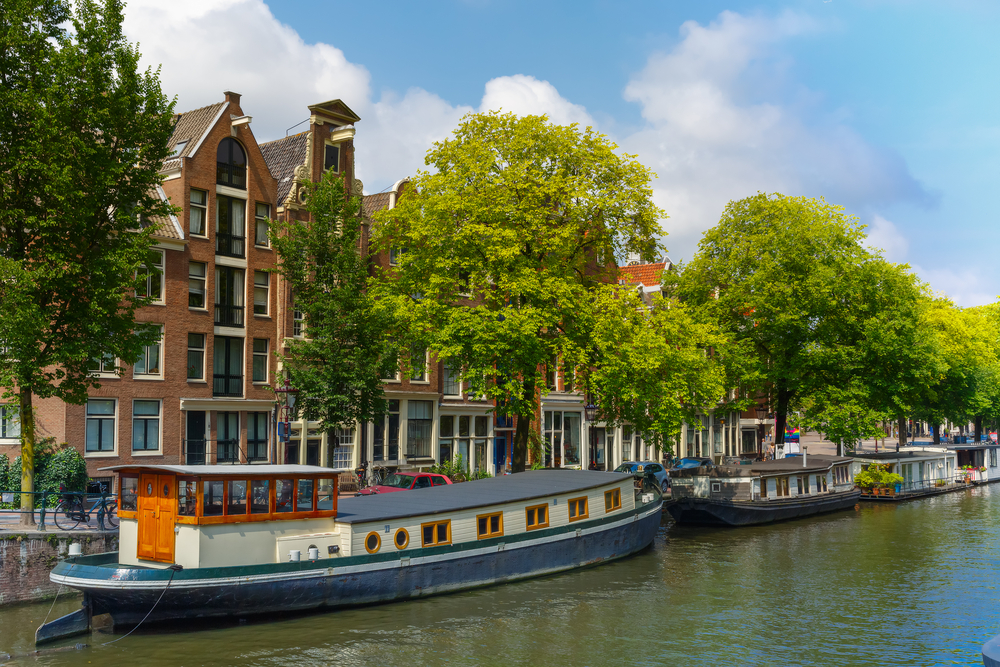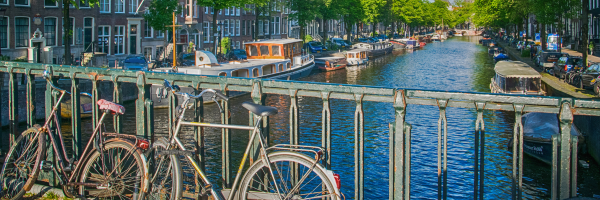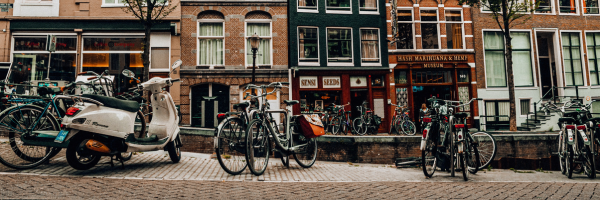
How to Get a BSN in the Netherlands: A Guide to Settling In
- Key Takeaways
- What Is a Citizen Service Number (BSN) and Why Does It Matter?
- Getting Your BSN as a Resident
- Non-Residents Records Database
- Required Documents for Your BSN Application
- Keeping Your Info Up to Date
- For Those with Non-EU Passports
- Can You Keep Your BSN If You Leave the Netherlands?
- Next Steps
- Moving to the Netherlands? Contact Us Today
- Frequently Asked Questions
If you’re planning to live in the Netherlands, one of the first things you’ll need to sort out is your BSN number. The burger service number (BSN) is your unique personal identification number and is required for accessing government services, social security, taxes, and financial activities.
It serves a similar function in the Netherlands as the social security number does in the United States, acting as a national identification number for residents and non-residents interacting with Dutch authorities and systems. It’s used in nearly every official system in the country, from taxes to healthcare, education, housing, and even opening a bank account or registering a telephone number.
It’s not, however, the number they give you at Five Guys when you’re waiting for your cheeseburger. Yes, Five Guys does exist here in Rotterdam (and yes, it tastes just as good on this side of the North Sea). But unlike your burger order, your BSN isn’t optional if you want to get anything done in the Netherlands.
Key Takeaways

- The BSN (Burger Service Number) is your essential personal identification number for living, working, and accessing services in the Netherlands.
- If you plan to stay longer than four months, register with your local municipality (gemeente) within five days of arrival to automatically receive your BSN.
- Your BSN is required for everything from opening a bank account and applying for a residence permit to filing taxes and accessing healthcare.
- Even if you move abroad, your BSN remains valid for Dutch financial and legal matters, such as inheritance tax or receiving the Dutch state pension.
What Is a Citizen Service Number (BSN) and Why Does It Matter?

Think of the BSN as your all-access pass to Dutch life. Once issued, it links you to government departments and service providers. You’ll use it to apply for a residence permit, file tax assessments, receive a salary, register for health insurance, and even interact with the tax administration when dealing with things like inheritance tax or your Dutch state pension.
If you’re a student, the BSN becomes your education number. If you’re working, it’s tied to your payroll. If you’re simply trying to get online banking or register with a GP, you’ll be asked for it within five minutes of trying to do anything remotely official.
Getting Your BSN as a Resident

If you’re moving to the Netherlands and plan to stay for more than four months, you’ll need to register with your local municipality (known as the gemeente) within five days of arriving. This is how you’re added to the Dutch Personal National Register (BRP), a centralised database that holds essential citizen data, and once you’re in, you’ll automatically receive your BSN.
Your accommodation must be legitimate; you can’t use a hotel or short-term Airbnb as your registered address. You’ll also need the owner or landlord of the property to sign paperwork confirming you’re living there.
You’ll be asked for valid proof of identity, a rental contract, and official confirmation of your address. Some municipalities may ask for additional documents depending on your circumstances, so it’s worth checking their website before your appointment. Once everything is approved, your details are logged, and your citizen service number BSN will be sent to your Dutch address.
Non-Residents Records Database

If you’re not planning to stay longer than four months in the Netherlands but still need a BSN, for example, if you’re freelancing or own property, you can register through the Non-Residents Records Database (RNI).
Children who are in the Netherlands for less than four months must also be registered in the RNI to receive a BSN, which is necessary for services like school enrolment.
There are 19 designated municipalities in the Netherlands that have an RNI desk. You’ll need to book an appointment and apply in person, bringing your passport, address details, and any other requested documents. In most cases, you’ll walk out with your number on the same day.
The RNI route is especially useful if you live abroad but need a BSN for tax or inheritance purposes, or if you need to open a Dutch bank account or interact with local authorities from overseas.
Required Documents for Your BSN Application

Before you can unlock Dutch life with your Citizen Service Number (BSN), you’ll need to gather the necessary paperwork. The exact documents you’ll need can vary depending on your country of origin, immigration status, and whether you’re registering as a resident or non-resident. Here’s what you should have ready when you head to your municipality (gemeente) or RNI desk:
- A valid passport or national ID card – This is your primary proof of identity. If you already have a Dutch identity card or driving licence, bring those along too.
- Residence permit or visa (if applicable) – Non-EU/EEA citizens will need to show their residence permit or IND proof.
- Proof of address – A signed rental contract, recent utility bill, or official letter confirming your Dutch address.
- Birth certificate – Required if you’re registering a child (sometimes with an official translation or apostille).
- Marriage certificate or proof of legal partnership – If you’re registering with a legal partner.
- Proof of income or employment – Some municipalities may ask for a work contract, payslip, or other documents, especially for workers or students.
- Other documents – International students might need an education number or PGN. Entrepreneurs may be asked for a Dutch company tax number.
It’s always smart to double-check the specific requirements with your local gemeente or the Dutch Tax Office (Belastingdienst) before your appointment. Requirements can differ, especially for non-residents, international students, or those who have lived abroad for more than eight months.
Once your registration is approved, you’ll receive your unique BSN, your key to public services, opening a bank account, and claiming benefits in the Netherlands. Your BSN is sensitive information, so keep it safe to avoid identity fraud. If you ever need to update your details or replace documents, contact your gemeente or the Belastingdienst.
Keeping Your Info Up to Date

If you move home, don’t forget to update your details with your new municipality. You must update your BRP records whenever you move, even if it’s within the same gemeente. Dutch bureaucracy is actually quite efficient, but only if you play by the rules. Any official letters, tax forms, or health insurance documents will be sent to the address you originally gave. If it’s out of date, you might miss something important.
For Those with Non-EU Passports

If you’re moving from outside the EU or EEA, the process involves one extra step. Before you can register with the municipality and get your BSN, you’ll need to sort out your legal status through the Immigration and Naturalisation Service (IND). This applies to anyone who requires a residence permit to stay in the Netherlands.
Once your immigration paperwork is in order, you’ll be able to register and receive your BSN like everyone else. We’ll go into this process in more detail in a future guide, as rules can vary depending on your nationality and visa type.
Can You Keep Your BSN If You Leave the Netherlands?

Yes. If you live abroad but have financial or legal ties to the Netherlands, maybe you own property, receive a Dutch pension, or pay inheritance tax, your BSN remains valid. Many expats and retirees keep their BSN active to continue dealing with Dutch authorities or banks, especially when it comes to tax administration or long-term investments.
Just make sure the Dutch government has an up-to-date foreign address for you, and that your BSN is linked to the correct details.
Next Steps

Once your BSN is in hand, you can finally start building your life here properly. You can open a bank account, register for healthcare, sign rental agreements, and even set up your online DigiD login with a QR code. It’s the key to doing things the Dutch way: efficient, orderly, and slightly obsessed with paperwork.
Whether you’re here long-term or just testing the waters, understanding how to get a BSN in the Netherlands is one of the most important first steps. Trust us, your future self will thank you.
Moving to the Netherlands? Contact Us Today
If you’re planning a move to or from Europe, UPakWeShip is your go-to partner. With our own offices in both the US and Europe, unbeatable rates, and proper customer support from real humans (not bots), we’ve helped thousands of people make international relocation simple.


No Comments